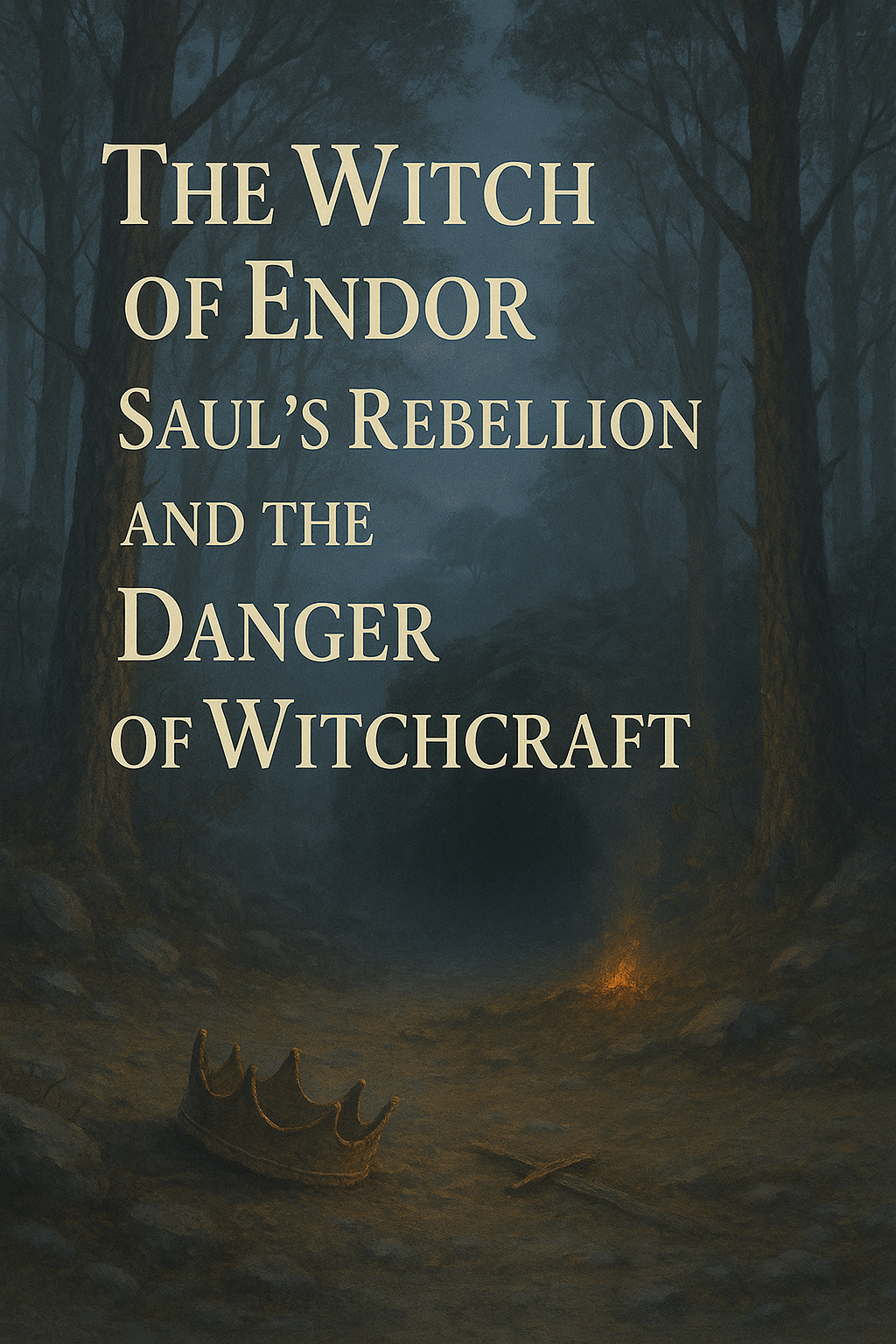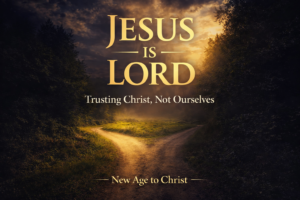⏱️ Estimated Reading Time: 3 min read
Podcast: Play in new window | Download | Embed
Subscribe Apple Podcasts | Spotify | Amazon Music | Pandora | Email
In this episode of the Servants of Grace Theology Segment, Dave Jenkins answers a listener’s question:
Who was the Witch of Endor, and what does this unusual passage in 1 Samuel 28 mean for Christians today?
Dave explores what Scripture says about Saul’s rebellion, God’s judgment, and the ongoing danger of witchcraft and spiritual deception. This episode will help you think biblically about one of the most striking passages in the Old Testament and how it applies today.
- Who the Witch of Endor was and why Saul sought her out
- What this passage reveals about Saul’s rebellion and God’s judgment
- Whether the spirit summoned was truly Samuel
- What the Bible teaches about necromancy and the occult
- Why modern spiritualism and occultism still threaten the Church
Audio Player:
Podcast: Play in new window | Download | Embed
Subscribe Apple Podcasts | Spotify | Amazon Music | Pandora | Email
Watch Video Here:
Scripture Referenced:
- 1 Samuel 28:3–25
- 1 Chronicles 10:13
- Deuteronomy 18:10–13
- 1 Peter 5:8
- John 8:44
Featured Quote:
“They’re not talking to a beloved departed family member or friend; they are consorting with the demons of hell.”
Recommended Resources:
- The Word Explored by Dave Jenkins
- Dominion and Dynasty by Stephen Dempster
Subscribe and Share:
Subscribe to the podcast on your favorite platform:
Thank you for listening or watching this episode of Servants of Grace.
Frequently Asked Questions
Was it really Samuel who appeared to Saul?
The text in 1 Samuel 28:12–20 indicates that God permitted the spirit of Samuel to appear—not through the witch’s power but as an act of judgment. The medium was shocked, meaning she did not conjure him by her own abilities. This was a sovereign act of God, not the result of occult power.
What does the Bible say about consulting mediums or necromancers?
Deuteronomy 18:10–13 strictly forbids consulting mediums, necromancers, or engaging with the occult. These practices are called abominations. Leviticus 20:6 also warns that those who turn to spiritists defile themselves and face God’s judgment. These actions are associated with spiritual deception and rebellion against God.
Why did Saul seek the Witch of Endor?
Saul sought the Witch of Endor out of desperation after God stopped speaking to him through prophets and dreams (1 Samuel 28:6). Instead of repenting, he turned to forbidden practices. 1 Chronicles 10:13–14 confirms that Saul died for his unfaithfulness, including his decision to consult a medium rather than seek the Lord.
Is witchcraft still dangerous today?
Yes. Modern occult practices—though often masked as entertainment or “spirituality”—remain spiritually dangerous. Galatians 5:19–21 includes sorcery among the works of the flesh that lead to destruction. 1 Peter 5:8 reminds Christians to be vigilant because the devil seeks to devour. Believers are called to reject these lies and cling to the authority and sufficiency of Scripture (2 Timothy 3:16–17).
Dave Jenkins is happily married to his wife, Sarah. He is a writer, editor, and speaker living in beautiful Southern Oregon. Dave is a lover of Christ, His people, the Church, and sound theology. He serves as the Executive Director of Servants of Grace Ministries, the Executive Editor of Theology for Life Magazine, the Host and Producer of Equipping You in Grace Podcast, and is a contributor to and producer of Contending for the Word. He is the author of The Word Explored: The Problem of Biblical Illiteracy and What To Do About It (House to House, 2021), The Word Matters: Defending Biblical Authority Against the Spirit of the Age (G3 Press, 2022), and Contentment: The Journey of a Lifetime (Theology for Life, 2024). You can find him on Facebook, Twitter, Instagram, Youtube, or read his newsletter. Dave loves to spend time with his wife, going to movies, eating at a nice restaurant, or going out for a round of golf with a good friend. He is also a voracious reader, in particular of Reformed theology, and the Puritans. You will often find him when he’s not busy with ministry reading a pile of the latest books from a wide variety of Christian publishers. Dave received his M.A.R. and M.Div through Liberty Baptist Theological Seminary.




